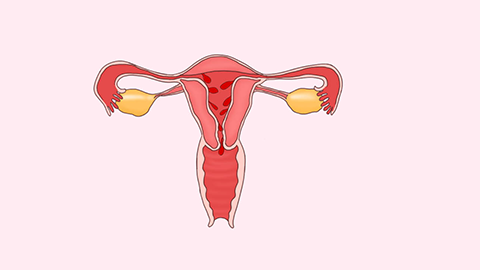What are the symptoms of endometrial thickening?
Generally, the symptoms of endometrial hyperplasia mainly include menstrual cycle disorders, significantly increased menstrual flow, prolonged menstruation, vaginal bleeding outside the menstrual period, and vaginal bleeding after menopause. If discomfort symptoms appear, it is recommended to seek timely diagnosis and treatment at a reputable hospital. Detailed analysis is as follows:
1. Menstrual Cycle Disorders
Endometrial hyperplasia can disrupt the regular menstrual cycle, causing irregular cycles. The cycle may shorten to less than 21 days or lengthen to more than 35 days, making the menstrual pattern unpredictable.
2. Significantly Increased Menstrual Flow
Endometrial hyperplasia increases the amount of shed endometrial tissue, resulting in menstrual flow明显 exceeding normal levels. This may cause a significant increase in the number of sanitary pads used during each period, sometimes accompanied by blood clots.

3. Prolonged Menstruation
Normally, menstruation lasts 3–7 days. Endometrial hyperplasia can significantly prolong the menstrual period, lasting more than 8 days or even up to several weeks, causing women to endure physical discomfort for a longer duration.
4. Vaginal Bleeding Outside the Menstrual Period
Endometrial hyperplasia may cause abnormal vaginal bleeding outside the menstrual period. This bleeding can occur between two menstrual cycles, varying in amount from minimal brownish discharge to light menstrual-like bleeding.
5. Vaginal Bleeding After Menopause
Postmenopausal women with endometrial hyperplasia may experience vaginal bleeding. This symptom is unique and requires prompt attention and medical evaluation.
In daily life, it is important to maintain good living habits, avoid excessive mental stress, and eat a balanced diet. Once diagnosed, patients should cooperate with doctors for targeted treatment and undergo regular follow-up examinations to ensure effective control of the condition.










